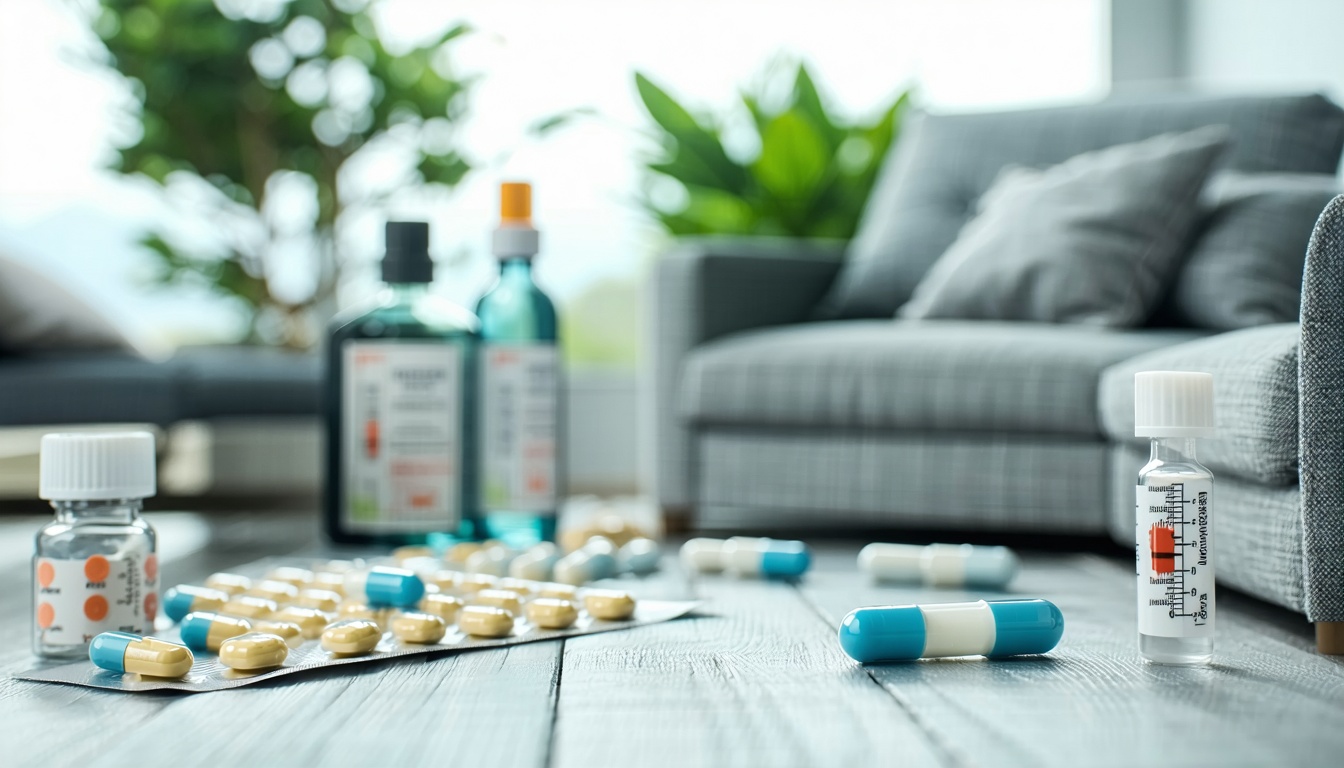Why Choose Us for Addiction Support
Picking the right help for addiction recovery is key for long-term success. At Addiction Treatment Centers of MD, we offer a bunch of services like DUI & DWI Education Classes, Addiction Counseling, Individual Therapy, Intensive Outpatient Group Therapy, Mara Groups, Medication Assisted Treatment, Methadone Treatment, Opioid Addiction Treatment, and Suboxone Medication Treatment. Here, we’ll dive into the perks of peer support workers, the goodies from SAMHSA, and how peer workers fit into behavioral health.
Peer Support Workers Benefits
Peer support workers are folks who’ve been through the wringer themselves and come out the other side. They’re here to help others in the same boat. They offer emotional support, share resources, and stand up for those in recovery. These workers keep clients engaged in their recovery and cut down the risk of relapse (SAMHSA).
| Benefits of Peer Support Workers | Impact |
|---|---|
| Emotional Support | Boosts motivation and morale |
| Resource Sharing | Provides access to helpful tools and information |
| Advocacy | Ensures clients’ needs are met within the system |
| Engagement | Keeps individuals committed to their recovery plan |
| Relapse Reduction | Decreases the likelihood of returning to substance use |
SAMHSA Resources on Peer Support
The Substance Abuse and Mental Health Services Administration (SAMHSA) dishes out a ton of resources on peer support, showing how crucial they are in recovery. According to SAMHSA, peer support workers do a bunch of stuff like:
- Emotional Support: Being there to listen and understand.
- Resource Sharing: Giving info about recovery programs and support services.
- Advocacy: Helping folks navigate the healthcare system and get the treatments they need.
- Skill Development: Helping people build life skills for long-term recovery.
SAMHSA also points out that peer workers need to pick up extra skills to help specific groups, like family members, making the support system even stronger.
Role of Peer Workers in Behavioral Health
Peer workers are becoming more and more important in behavioral health treatment teams. They bring something to the table that traditional clinical staff might not have. Adding peer workers to treatment teams has shown to improve client outcomes.
According to SAMHSA, supervisors need to know how to manage peer workers well to get the most out of them. Good supervision makes sure peer workers can give the best support while also taking care of themselves.
At Addiction Treatment Centers of MD, we get how valuable peer support is in the recovery journey. Our programs mix peer workers into different parts of treatment, from individual therapy for addiction to intensive outpatient group therapy. This not only makes the recovery experience better but also builds a supportive community where people can thrive.
For more info on our services and the role of peer support in addiction recovery, check out our pages on evidence-based addiction treatment and relapse prevention strategies.
Why Addiction Support Groups Matter
What the Surgeon General Says
The Surgeon General’s report, “Facing Addiction in America: The Surgeon General’s Report on Alcohol, Drugs, and Health,” released in November 2016, shines a light on the urgent need for addiction support groups. The report reveals that one in seven Americans will face a substance use disorder at some point, but only one in ten will get any specialized treatment. Plus, over 40% of those with substance abuse issues also struggle with mental health conditions, yet less than half will receive help for either problem.
How Support Groups Help
Addiction support groups are game-changers for recovery. More than 5 million Americans attend these groups each year, with meetings happening almost daily in towns and cities nationwide (Addictions.com). Groups like Alcoholics Anonymous (AA) serve over 2 million people in 115,000 groups across 170 countries, offering a safe space for folks to share their stories and coping tips.
Going to these meetings boosts an addict’s chances of kicking the habit for good. They provide a caring and private setting where members can talk about their struggles and get feedback, encouraging them to try new ways of living.
Perks of Joining Support Groups
Support groups for addiction come with a bunch of perks that make the recovery journey smoother. Here are some of the top benefits:
- Accountability: Regular meetings push members to own up to their actions.
- Shared Experiences: Members learn from others who’ve been in their shoes.
- Emotional Support: Groups offer a safe space to talk about feelings and get empathy.
- Coping Strategies: Folks can share and pick up effective ways to handle cravings and triggers.
- Social Connection: Building bonds with others in recovery helps beat loneliness.
- Relapse Prevention: Ongoing support helps keep relapses at bay.
| Benefit | Description |
|---|---|
| Accountability | Encourages responsibility for actions. |
| Shared Experiences | Learning from others’ challenges. |
| Emotional Support | Safe space for discussing feelings. |
| Coping Strategies | Sharing effective techniques. |
| Social Connection | Reduces feelings of isolation. |
| Relapse Prevention | Continuous support for preventing relapse. |
At Addiction Treatment Centers of MD, we weave support groups into our treatment plans to offer well-rounded care. Check out our individual therapy for addiction and intensive outpatient group therapy to see how we can help you on your recovery path. We also provide family therapy for addiction to support your loved ones.
For more on how support groups can boost your recovery, visit our page on evidence-based addiction treatment.
Find Your Perfect Support Group
We get it—finding the right support group can make or break your recovery journey. At Addiction Treatment Centers of MD, we’ve got a bunch of support groups for addiction to fit all kinds of needs and preferences. Here’s a rundown of what we offer:
12-Step Support Groups
You’ve probably heard of 12-Step groups like Alcoholics Anonymous (AA) and Narcotics Anonymous (NA). These are the big players in the recovery world. They follow a program that helps you accept you can’t control your addiction, find a higher power, and stay clean. Daily meetings for at least three months are recommended to get into the groove and build a solid support network (Partnership to End Addiction).
| Group | Focus | Key Principle |
|---|---|---|
| Alcoholics Anonymous (AA) | Alcohol addiction | Powerlessness over alcohol |
| Narcotics Anonymous (NA) | Drug addiction | Higher power and abstinence |
Alternatives to 12-Step Programs
Not everyone vibes with the 12-Step approach, and that’s cool. We’ve got other options that focus on self-empowerment and sobriety, catering to different recovery styles.
| Group | Focus | Approach |
|---|---|---|
| SMART Recovery™ | All addictions | Self-empowerment |
| Secular Organizations for Sobriety (SOS) | All addictions | Secular recovery |
| Women for Sobriety (WFS) | Women with addictions | Female-centric support |
| Celebrate Recovery | All addictions | Christian-based recovery |
| Jewish Alcoholics, Chemically Dependent Persons, and Significant Others (JACS) | Jewish community | Faith-based support |
These groups offer a mix of philosophies and practices, so you can find one that clicks with your values and goals.
Family Support Groups
Family can be your rock during recovery. Family support groups are here to guide, support, and help set boundaries. They connect you with others going through the same stuff, making the journey a bit easier (Addiction Center).
| Group | Focus | Purpose |
|---|---|---|
| Al-Anon | Families of alcoholics | Support and guidance |
| Nar-Anon | Families of drug addicts | Support and understanding |
| Family Therapy Groups | Families of those in recovery | Therapy and communication |
Want more info on family support? Check out our page on family therapy for addiction.
We’re all about giving you the tools you need to succeed. Explore our different programs and find the one that fits you best. Need tips on avoiding relapse? Visit our section on relapse prevention strategies.
How Peer Support Groups Help Beat Addiction
Peer support groups are game-changers in the fight against addiction. Let’s break down how they boost recovery, cut down on relapse, and change substance use habits for the better.
Winning at Recovery
Peer support groups are like a secret weapon for recovery. A study by Armitage et al. found that the Recovery Community Services Program, which offers peer recovery services, led to high rates of staying clean from alcohol or drugs after six months. This shows that having a support system of peers can keep you on track and feeling good.
Peer support workers, who have been through the wringer themselves, help others facing similar battles. Their personal stories and encouragement make a big difference, keeping folks motivated. According to SAMHSA, these services go beyond just clinical help, creating a supportive space for ongoing recovery.
Keeping Relapse at Bay
One of the best things about peer support groups is how they help prevent relapse. Boisvert et al. set up a peer support community program that seriously cut down relapse rates among people in recovery living in permanent supportive housing (NCBI). This study proves that peer support is key to staying sober for the long haul.
At the Addiction Treatment Centers of MD, we know how crucial relapse prevention strategies and peer support are. By offering a network of shared experiences and support, peer groups help folks tackle the tough times, making relapse less likely.
Changing Substance Use Habits
Peer support groups also make a big dent in substance use habits. Tracy et al. looked into a new program called mentorship for alcohol problems (MAPs), which included peer support groups and one-on-one mentorship for people with alcohol issues. The study showed great results in cutting down alcohol and drug use among participants (NCBI).
By joining peer support groups, people find a community that gets their struggles and offers real-life advice and emotional backup. This team effort not only helps reduce substance use but also encourages healthier choices and coping skills.
| Impact of Peer Support Groups | Outcome |
|---|---|
| Staying Clean | High rates at 6-month check-in |
| Relapse Prevention | Big drop in relapse rates |
| Substance Use Habits | Less alcohol and drug use |
At the Addiction Treatment Centers of MD, we have a bunch of support group options to fit the different needs of people in recovery. Our programs include DUI & DWI Education Classes, Addiction Counseling, Individual Therapy, Intensive Outpatient Group Therapy, and more. For more details on our services, check out our page on addiction treatment in Maryland.
By adding peer support groups to our treatment plans, we make sure our clients get the support they need to succeed in their recovery. For more info on the perks of peer support, read our articles on evidence-based addiction treatment and trauma-informed addiction treatment.
Different Ways to Support Recovery
At Addiction Treatment Centers of MD, we know that recovery isn’t one-size-fits-all. That’s why we offer a range of approaches to meet the unique needs of each person. Let’s take a look at some of the options available.
SMART Recovery Program
SMART Recovery is a science-based program that focuses on changing thought patterns to tackle triggers, aligning behaviors with personal values, and promoting self-empowerment. Unlike traditional 12-Step programs, SMART Recovery skips sponsors, higher powers, and prayers. It supports the legal use of prescription medications for those in Medication-Assisted Treatment (Partnership to End Addiction).
SMART Recovery follows a 4-Point Program:
- Building and Keeping Motivation
- Handling Urges
- Managing Thoughts, Feelings, and Behaviors
- Living a Balanced Life
Want to know more about how SMART Recovery can fit into your treatment plan? Check out our page on cognitive-behavioral therapy maryland.
Moderation Management (MM)
Moderation Management (MM) is for adults who want to cut back on their drinking. MM suggests a 30-day break from alcohol before starting the moderation phase. This helps people reset their relationship with alcohol and rethink their drinking habits. Some find moderation works, while others may choose abstinence (Partnership to End Addiction).
Key parts of MM include:
- Setting drinking limits
- Self-monitoring
- Behavioral techniques
- Peer support
If you’re thinking about moderation as part of your recovery, MM offers a flexible approach that can be adjusted as you progress. More details are available in our section on individual therapy for addiction.
Adding Other Therapies
Support groups like SMART Recovery and Moderation Management work best when combined with other treatments. Pairing these groups with therapies like individual therapy for addiction, family therapy for addiction, and trauma-informed addiction treatment can create a well-rounded recovery plan.
| Therapy Type | Benefits |
|---|---|
| Individual Therapy | Personalized attention, custom strategies |
| Family Therapy | Strengthens family support, improves communication |
| Trauma-Informed Treatment | Tackles underlying trauma, holistic healing |
For a deeper dive into various therapies and their benefits, visit our page on evidence-based addiction treatment.
By offering a variety of support groups and therapies, we aim to give each person the tools they need for a successful recovery. Explore our options and find the right fit for your path to wellness.
Boosting Recovery with Support Groups
Support groups are like the secret sauce in the recovery recipe, offering community, understanding, and a good dose of accountability. At the Addiction Treatment Centers of MD, we’re all about the magic of peer-led recovery support, blending it seamlessly into our treatment plans.
Peer-Led Recovery Support
Peer-led recovery support groups are the backbone of our addiction treatment strategy. These groups are run by folks who’ve been through the wringer themselves and come out the other side. They get it. They’ve lived it. And they’re here to share that wisdom and empathy. Peer support groups aren’t a replacement for one-on-one counseling or group therapy but they sure do pack a punch as a sidekick (Partnership to End Addiction).
| Type of Support | What It’s About |
|---|---|
| Individual Counseling | Heart-to-heart sessions with a licensed therapist |
| Group Therapy | Group chats focusing on shared experiences |
| Peer Support Groups | Peer-led hangouts offering community and mutual support |
Jumping into a peer support group after treatment can keep the recovery train on track. It’s all about structure, meeting folks who get you, and picking up new coping tricks. Curious? Check out our individual therapy for addiction page for more.
Mixing Support Groups into Treatment
Mixing support groups into the treatment plan is like adding the final touch to a masterpiece. At the Addiction Treatment Centers of MD, we’ve got a buffet of support group options, from 12-Step programs to SMART Recovery and family support groups. These groups back up what you learn in therapy and keep the support flowing.
Support groups are the perfect sidekick to regular counseling, group therapy, and medical care. This all-in-one approach makes sure you’re covered from every angle. Want to know more? Dive into our evidence-based addiction treatment page.
The Role of Support Groups in Recovery
Support groups are the unsung heroes of the recovery journey. They help you build a network of supportive buddies, keep you on the straight and narrow, and give you the tools to manage recovery like a pro. These groups are safe spaces to share, cheer each other on, and get some honest feedback.
| Benefit | What It Means |
|---|---|
| Building Supportive Relationships | Finding your tribe who gets the struggle |
| Sustained Recovery Achievements | Keeping sobriety on lock with mutual support |
| Positive Impact on Recovery Management | Learning how to dodge relapse like a champ |
By joining support groups, you can beef up your recovery skills and cut down the chances of a relapse. For more tips on staying on track, check out our relapse prevention strategies.
At the Addiction Treatment Centers of MD, we’re all about lifting people up through community and support. Dive into our range of support groups and see how they can supercharge your recovery. For more on what we offer, head over to addiction treatment in Maryland.
Real-Life Benefits of Peer Support
Substance Use Improvements
Peer support groups have shown time and again that they can make a real difference in substance use recovery. Take the study by Armitage et al., for example. They found that the Recovery Community Services Program led to high abstinence rates from alcohol or drugs at the 6-month mark. This means folks were staying clean and sober long after the program ended (NCBI). It’s clear that having peers who understand your struggle can be a game-changer in addiction treatment.
| Study | 6-Month Abstinence Rate |
|---|---|
| Recovery Community Services Program (Armitage et al.) | High |
Our addiction support groups use these insights to create a space where long-term sobriety is not just a goal but a reality. Curious about our methods? Check out our evidence-based addiction treatment.
HIV and HCV Risk Reduction
Peer support groups are also crucial in cutting down risky behaviors that lead to HIV and HCV. Velasquez et al. looked at a program that combined one-on-one counseling with peer group education to help HIV-positive men who have sex with men reduce their alcohol use. The results? Less drinking and fewer risky behaviors that could lead to HIV and HCV (NCBI).
By weaving peer support into our addiction treatment in Maryland, we aim to help our clients make safer choices and lead healthier lives.
Tackling Cravings and Boosting Confidence
Peer support groups also help tackle those nagging cravings and boost self-confidence. Tracy et al. studied a program called Mentorship for Alcohol Problems (MAPs), which included peer support groups and one-on-one mentorship. They found it helped reduce alcohol and drug use among participants (NCBI). Another study by Boisvert et al. showed that a peer support community program significantly cut down relapse rates for people in recovery living in supportive housing.
| Study | Outcome |
|---|---|
| Mentorship for Alcohol Problems (Tracy et al.) | Reduced alcohol and drug use |
| Peer Support Community Program (Boisvert et al.) | Reduced relapse rates |
These studies show that peer-led interventions can really help keep cravings at bay and build the confidence needed for long-term recovery. Want more tips on avoiding relapse? Check out our relapse prevention strategies.
Our support groups aim to create a supportive community that empowers you to stay on the path to recovery. Interested in how we can help you? Visit individual therapy for addiction to learn more.
Empowering Recovery Through Community
Building Supportive Relationships
At Addiction Treatment Centers of MD, we know that having a solid support system is key to kicking addiction. Peer support groups are a big part of this. They give folks a place to share their ups and downs with others who get it. Research by Boisvert et al. shows that these groups can seriously cut down on relapse rates and make people feel more connected and supported. By joining our support groups for addiction, people can form bonds that really help them stay on track.
Sustained Recovery Achievements
Our support groups are all about helping folks stay clean for the long haul. The Recovery Community Services Program, studied by Armitage et al., found that 86% of participants were still off alcohol or drugs six months later. This shows how powerful peer support can be in staying sober. At Addiction Treatment Centers of MD, we offer a range of programs like Methadone Treatment and Suboxone Medication Treatment to help people live substance-free lives.
Positive Impact on Recovery Management
Support groups do more than just help people stop using substances; they also improve overall recovery management. The mentorship for alcohol problems (MAPs) study by Tracy et al. found that mentees cut down their alcohol and drug use significantly, and mentors stayed sober. This highlights how structured support can make a big difference. At our centers, we mix support groups with other therapies like Cognitive-Behavioral Therapy and Individual Therapy, giving a well-rounded approach to beating addiction.
| Program Type | Outcome Measure | Result |
|---|---|---|
| Recovery Community Services Program | 6-month abstinence rate | 86% |
| Mentorship for Alcohol Problems (MAPs) | Reduction in alcohol/drug use | Significant |
| Peer Support Community Program | Reduction in relapse rates | Significant |
By building supportive relationships, achieving long-term recovery, and improving overall recovery management, our support groups lay a strong foundation for those fighting addiction. For more details on our programs and services, check out our page on evidence-based addiction treatment.




